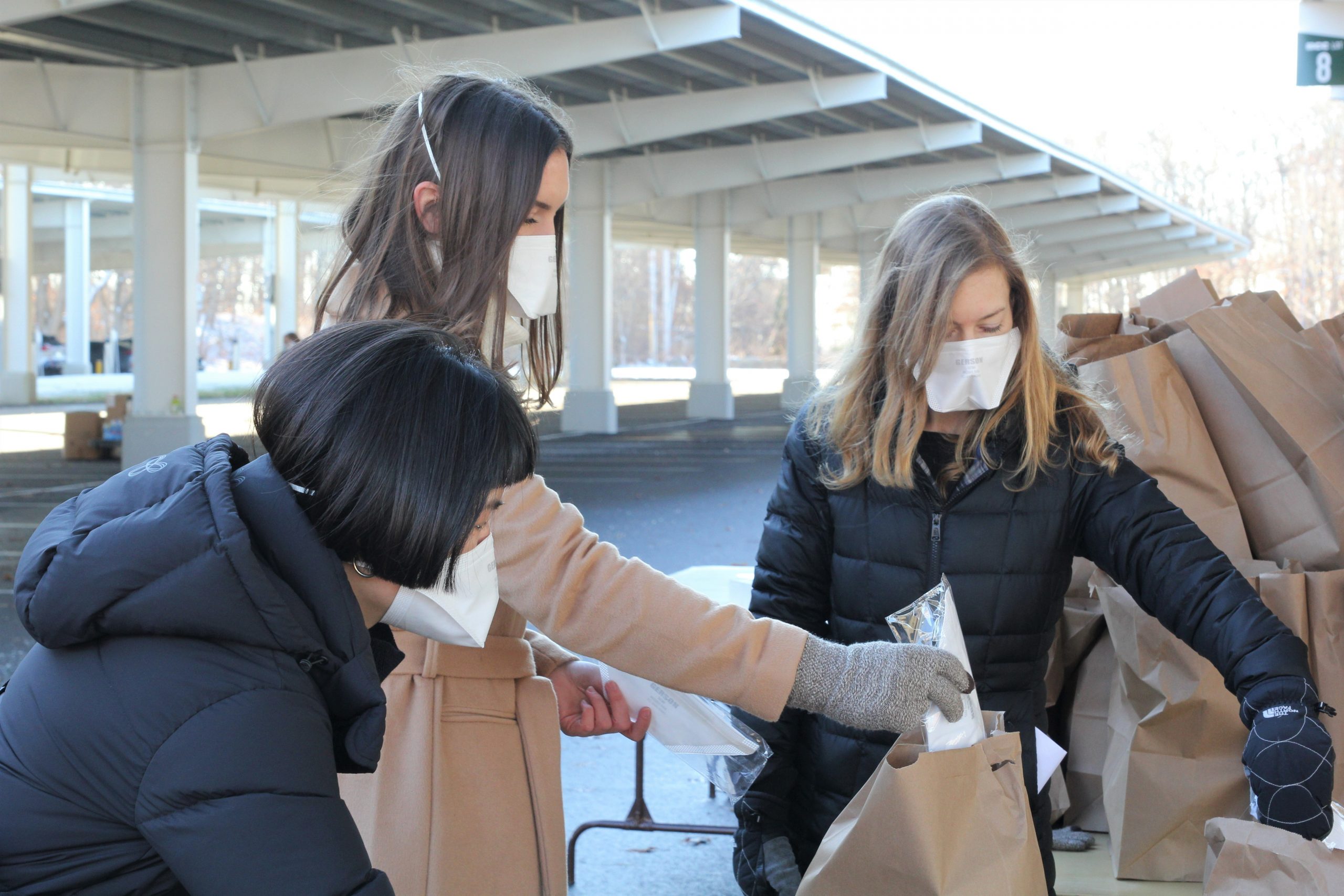SPH Joins Partnership to Distribute 20,000 Masks to Mass. Community Groups.

SPH Joins Partnership to Distribute 20,000 Masks to Mass. Community Groups
Julia Raifman, right, helps pack masks with Alexandra Skinner, a SPH research fellow, center; and Emy Takinami from Harvard, at left.
School of Public Health researchers joined colleagues at Harvard University and Project N95, a national group securing equitable access to personal protective equipment, to help distribute 20,000 protective masks to high-need areas in Massachusetts.
With more than two million people in Massachusetts still unvaccinated, and holiday gatherings underway, COVID cases have risen sharply in recent weeks. Many hospitals are full or warning of bed shortages to come as public health officials fear even higher rates of infection.
While public health officials in Massachusetts are tracking the rise of the Omicron variant, Delta continues to spread rapidly in Massachusetts and can cause severe illness and death, warns Julia Raifman, an assistant professor of health law, policy & management at SPH.
“In addition to vaccines, high-quality masks are important for protecting people. While they are not as expensive as they used to be, they can be a big expense for people in low-income communities,” Raifman says. “We hope this donation will help protect students, workers, and families.”
Raifman leads the COVID-19 US State Policy (CUSP) Team at SPH, which is designed to be a tool for researchers, policymakers, journalists, and the public to better understand how policies impact population health and health equity.
The shipment of masks included 10,000 NIOSH-approved N95 respirators donated by the Louis M. Gerson Co. of Middleboro, Mass., and 10,000 high-quality, high-filtration masks in a “boat” style from Bona Fide Masks of Westchester County, NY. The face-cupping shape of the boat-style masks provide protection for children and those with smaller faces, noted the donation organizers. There is no child’s mask yet approved by the National Institute for Occupational Safety and Health (NIOSH), the federal agency responsible for conducting research and making recommendations for the prevention of work-related injury and illness.
“Project N95 believes strongly that literally everyone deserves quality respiratory protection during the pandemic. Quality products need to be accessible, affordable and authentic,” says Project N95 Executive Director Anne Miller.
The community sites receiving the masks were La Colaborativa of Chelsea, People Incorporated in Fall River, YWCA Southeastern MA – New Bedford, YMCA Southcoast Swansea – Fall River, SEIU509, and Bristol Community College.
“As we enter the winter holiday season, we are witnessing a surge in COVID-19 cases across Massachusetts and beyond,” says Natalia Linos, acting director of the FXB Center at Harvard University. “A key public health strategy is to remove financial barriers to accessing proven preventive measures that reduce community transmission. We’re pleased to partner with Project N95 and community organizations to make high-quality masks available for free and help ensure everyone has the opportunity to protect themselves and their loved ones.”
Maggie C., a dental hygiene student who asked that her last name not be used, says she and her colleagues recognize the importance of using N95 masks while seeing patients. “We all want to be doing everything in our power to stop the spread of Covid and wearing N95s is part of that,” she says. “The cost of these masks really adds up. We’re required to use a new mask for each patient we see. This means we’re going through at least two masks daily on our clinic days this semester. Next semester we will be seeing three patients per clinic day, so we will be going through quite a few masks. Any help at all would be enormously appreciated.”